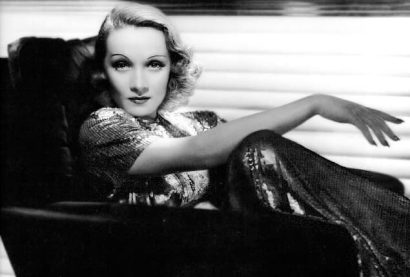During the German Empire's reign, a future actress was born days after Christmas in 1901, in Berlin. Marlene Dietrich's mother was from a wealthy family, and her father was a police officer. She studied violin in her youth and developed an interest in theater and poetry as a young woman. Moreover, her early beginnings involved playing violin for silent films, singing in the choir, and playing small and vital parts in many German movies. Her role in musicals attracted attention to her talents. After success as a singer in a film called the Blue Angel, she moved to the United States.
Beginnings in America
Through her connection with director Josef von Sternberg, she starred in six films under his direction. She cultivated her image as a glamorous actress. She used her musical talent to star in movies that were somewhat provocative for her era. After starring in films that became a commercial success, she becomes one of the best-paid actresses of her time. However, she later declined in her popularity and was placed at the 126th rank in the box office.
Activism
At this time, the Nazi Party approached her while in London and offered her a lucrative deal: if she were to agree to return to Germany as a film star, boosting the Third Reich image. Marlene declined and applied for US citizenship. She used her resources to create a fund that helped Jews and other dissidents escape Nazi Germany. Marlene used her entire salary from one of her movies, "Knight Without Armor," to put it in the fund.
Following the renunciation of her German citizenship, she began selling war bonds, succeeding at it than any other celebrity. Marlene performed to allied troops through the war in Algeria, Italy, UK, France, Netherlands, and Germany. She played a critical role in assisting the Office of Strategic Services (known today as the Central Intelligence Agency) to record and broadcast her music in German as part of psychological warfare. As a result of her actions during the war, she received the Medal of Freedom for entertaining the troops in addition to Légion d'Honneur by the French government. The tours that she went on often involved working in difficult and dangerous environments. There were reported instances where Marlene was working on the front lines of the war. However, she adapted to those environments by sleeping in tents and giving performances without power.
The impact of contribution
Marlene is one of the icons of Hollywood cinema. However, she is also an example of a musically talented celebrity who put their fame and skill into good. Not only did she entertain Allied troops, but she saved many lives by financing their escape from the fascist regime. And while she continued to have financial success in her musicals and films, she suffered from her contribution to the war effort.
Her visit to West Germany in 1960 resulted in negative press and hostility. Generally speaking, German nationalists saw her as a traitor. Two bomb threats were made against her alongside protestors chanting, “Marlene, Go Home!”. Her visit and tour in Germany were not successful financially, and she felt drained by the attitude she met there. Nevertheless, when her career ended in show business, she continued to be politically active and in contact with many world leaders, attempting to exert whatever influence she had to advance positive change.
.
Sign up for one of our upcoming events soon!!

